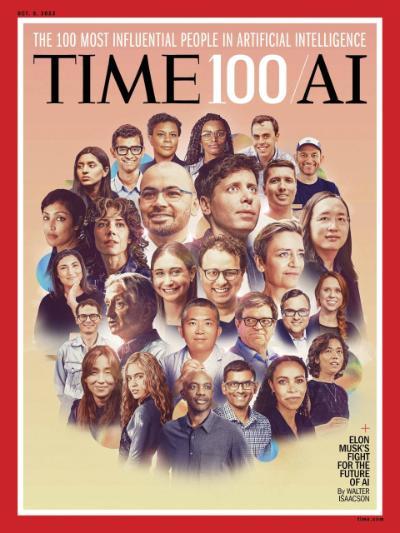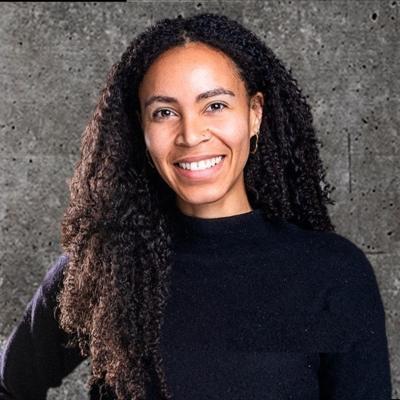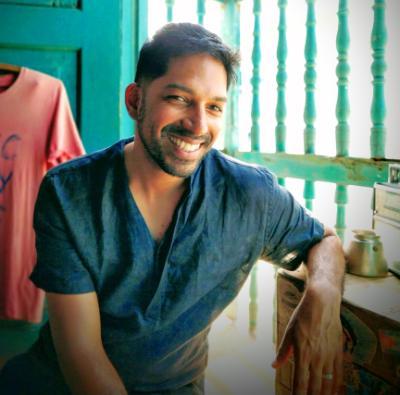Two Witsies named in TIME100/AI list
- Wits Alumni Relations
Innovators make prestigious honour roll for grappling with technology's ethical implications and social challenges.
 Two Wits alumni Pelonomi Moiloa (BSc Eng BM 2014, BSc Eng Elec 2015) and Shakir Mohamed (BSc Eng 2005, MSc Eng 2007) were named among TIME magazine’s “100 Most Influential People in Artificial Intelligence (AI)”, published on 7 September 2023.
Two Wits alumni Pelonomi Moiloa (BSc Eng BM 2014, BSc Eng Elec 2015) and Shakir Mohamed (BSc Eng 2005, MSc Eng 2007) were named among TIME magazine’s “100 Most Influential People in Artificial Intelligence (AI)”, published on 7 September 2023.
According to the magazine’s editorial, its production team spent months interviewing “nearly all of the individuals on the list to get their perspective on AI today.
“We wanted to highlight the industry leaders at the forefront of the AI boom, individuals outside these companies who are grappling with profound ethical questions around the uses of AI, and the innovators around the world who are trying to use AI to address social challenges,” says executive editor Naina Bajekal, who led the effort.
Innovator
Thirty-year-old Moiloa, who is CEO of Lelapa AI, was listed under the “innovators” category. In April this year the company announced the company’s first natural language model solution, Vulavula. “Vulavula is a language technology-as-a-service, focusing on under-represented languages (specifically South African languages), through text and voice technologies,” she said.
She completed a double major in biomedical engineering and electrical engineering at Wits because she was fascinated by artificial organs and limbs. She went on to earn a master’s degree in 2016 at Tohoku University in Japan, where she focused on the intersection of bioengineering and artificial intelligence.
 According to TIME, she returned to South Africa, when AI jobs were hard to come by, and ended up working as a data scientist for a bank. At the Deep Learning Indaba in 2017, a conference that aimed to strengthen machine learning and AI on the African continent, she met the others who would co-found Lelapa AI. Many Witsies are among this group including Vukosi Marivate (BSc Eng 2007, MSc 2009), George Konidaris (BSc 2001, BSc Hons 2002), Pravesh Ranchod (BSc 2001, BSc Hons 2002, MSc 2005, PhD 2018) and Benjamin Rosman (BSc 2007, BSc Hons 2008, BSc Hons 2009).
According to TIME, she returned to South Africa, when AI jobs were hard to come by, and ended up working as a data scientist for a bank. At the Deep Learning Indaba in 2017, a conference that aimed to strengthen machine learning and AI on the African continent, she met the others who would co-found Lelapa AI. Many Witsies are among this group including Vukosi Marivate (BSc Eng 2007, MSc 2009), George Konidaris (BSc 2001, BSc Hons 2002), Pravesh Ranchod (BSc 2001, BSc Hons 2002, MSc 2005, PhD 2018) and Benjamin Rosman (BSc 2007, BSc Hons 2008, BSc Hons 2009).
The startup, whose name means “home” in Sotho and Tswana, aims to improve the quality of life of Africans via AI. These tools will assist companies that reach customers by call centres and text-based customer-service apps. Moiloa told TIME the team would like to venture beyond just language-based AI and is considering developing products in robotics as well.
Moiloa is passionate about training AI models to properly pronounce South African names. “African names get butchered quite badly, to the point of non-recognition. So that’s something I’m excited about because there’s such a big meaning behind names.
“Technology really has the capability to make life a little bit nicer for everyone. But if we don’t create it with that kind of intention, then the absolute opposite is true,” she said. “It’s important for us as Africans to own that narrative and own what we want to write into our futures from a code perspective,” she said.
Thinker
Thirty-nine-year-old Mohamed is the research director at Google DeepMind and made the “thinker” category of TIME’s compilation. He was a star student during his time at Wits, receiving multiple student awards: SAIMM Gold Medal Award, Bernard Price Prize for electrical engineering, the Chancellor’s Medal, Schneider Automation 足球竞彩app排名 Award as well as the Altech Electronic Engineering Medal. He enrolled in the University of Cambridge to study machine learning in 2007.
“When I was a PhD student, if someone knew what machine learning was, that was amazing,” Mohamed told TIME. “It would literally make our day.”
In 2013, Mohamed went on to join what was then a small London-based startup called DeepMind. There, he pioneered some of the early research around generative AI models. His papers have been cited thousands of times by other researchers. (Google acquired DeepMind in 2014; it’s now one of the world’s top AI labs.) But Mohamed’s passions go beyond technical research.
In 2017, he co-founded the Deep Learning Indaba, an organisation that aims to strengthen machine learning and AI across Africa. An indaba is a gathering to discuss a serious topic, and the Deep Learning Indaba brings together leading researchers in Africa for networking and learning opportunities at its annual conference (this year’s is in Ghana). It also supports smaller IndabaX conferences in 36 different countries and incentivises research by offering awards for the most impactful machine-learning papers from the continent.
Past conferences have brought together people who eventually co-founded startups such as Masakhane and LelapaAI. In Eastern Europe and Latin America, machine-learning researchers were inspired by the Indaba to create their own conferences and events to increase representation from lower- and middle-income countries.
“My personal mission is to work on machine learning that has a social purpose,” he said. By way of warning that without proper representation from people all over the world, new technologies like AI can easily cause harm, he cites an example: Researchers used innovative forecasting techniques to predict the El Niño weather system in Peru in 1998. But those forecasts were often misinterpreted and in some cases ignored by the fishing industry, in part because scientists didn’t know how to communicate with fishermen. Mohamed wants to work on projects that place the needs of local communities at the forefront of AI research. “This is one of the values that drives my work,” he said.
See full list.
Sources: Wits archive and TIME


